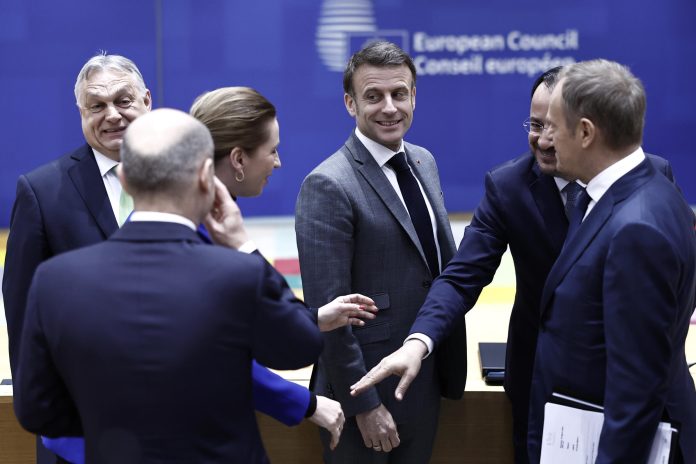European Commission President Ursula von der Leyen has said that the leaders of the EU member states have agreed to allocate to Ukraine the proceeds from frozen Russian assets subject to EU sanctions and their implementation is expected this summer.
At the end of the first day of the EU summit in Brussels, von der Leyen commented on EU decisions on Ukraine. She announced on Thursday that leaders had endorsed a proposal by EU High Representative for Foreign Affairs and foreign policy chief Josep Borrell, saying:
“This will provide funding for military equipment to Ukraine.”
It expects about 3 billion euros ($3.25 billion) in 2024 and similar amounts in subsequent years, von der Leyen said. If the proposal is finalised quickly, the first 1 billion euros could be transferred as early as 1 July.
Von der Leyen also announced a proposal to raise customs duties on grain, oilseeds and derivative products from Russia and Belarus, saying she would provide more details on Friday.
In the final communiqué of the summit, the section on Ukraine emphasised the urgent need for air defence systems, ammunition and missiles and the need to accelerate the provision of all necessary military assistance by the EU and its member states.
The statement welcomed efforts, including the Czech Republic’s initiative to supply ammunition to Ukraine, and pledged to quickly fulfil the EU’s commitment to provide one million artillery shells.
However, despite the decision to start accession talks at the previous summit, that statement made no mention of Ukraine’s EU accession process.
Ukrainian President Volodymyr Zelensky addressed the leaders via videoconference during the Ukraine session, saying:
“Unfortunately, the use of artillery on the front lines by our soldiers is humiliating for Europe in the sense that Europe can provide more. And it is crucial to prove it now.”
Zelensky urged the EU to quickly accelerate defence production, called for the use of frozen Russian assets to rebuild Ukraine and for Ukraine’s EU accession talks to begin as soon as possible.
The summit of European leaders comes at a time when Kyiv is increasingly worried about the stability of US military support, given that it is an election year and former President Donald Trump is likely to run for a second term.
In recent weeks, Zelensky has asked European allies for additional support and warned that the Ukrainian army is running out of ammunition, especially artillery shells.
While reactions to the conflict in Ukraine dominated the summit, EU leaders managed to show rare unity on the war in Gaza.
The leaders, divided between ardent supporters of Israel and those more Palestinian-minded, said they were “shocked by the unprecedented loss of civilian lives and the critical humanitarian situation.”
Closer to home, they also gave the green light to open membership talks with Bosnia, but they held back on the happy news, saying talks could only begin after the Balkan country undertakes more reforms.
